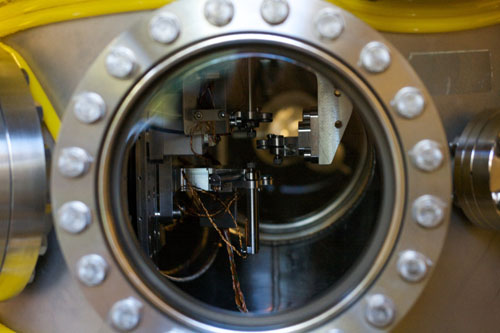Quantum Foundations, Matter-waves and Optomechancis
Quantum theory is considered to be the theory of the small, the microscopic - the atomic and subatomic - world and truly it is an extremely powerful/successful concept, even sometimes described as the most precise theory we have. However still an open question, despite many efforts, is if and how it applies also to macroscopic systems. Indeed it would be absolutely fascinating to see quantum mechanical behaviour even for macroscopic systems, such systems which can be seen with the bare eye. Until today macroscopic systems are always found to behave according to classical laws. The open question is if macroscopic or mesoscopic (which is in between the micro- and macroscopic scale) systems can show quantum behaviour in principle. So far no experiment could resolve the mechanism of that quantum to classical transition. The physics to model this transition includes gravity and high-energy physics interactions as decohering elements, which links our research to quantum field theories.
We perform matter-wave interference experiments with very massive particles. We develop new technologies for Ramsey-Borde atom interferometry and optical trapping and cooling techniques for nanoparticles. We perform theoretical research of phase transitions and collisions of ultra-cold atoms in optical lattices.
People involved:
Hendrik Ulbricht
Timothy Freegarde
Janne Ruostekovski
Simone De Liberato
Timothy Morris
Alexander Merle
Spin systems
Nuclear and electron spins are picture book quantum systems and their detailed investigation reveal ever-surprising details about the properties of molecular and condensed matter systems strongly determined by quantum behaviour of internal degrees of freedom. Technology to perform spin experiments pioneered techniques now widely used in atomic physics and spectroscpy such as Ramsey spectroscopy. Further we aim to combine elecron and nuclear spin experiments with molecule interferometry and perfrom spintrocnics pump-probe experiments.
People involed:
Malcolm Levitt
Marcel Utz
Ilya Kuprov
Timothy Freegarde
Hendrik Ulbricht
Pavlos Lagoudakis
